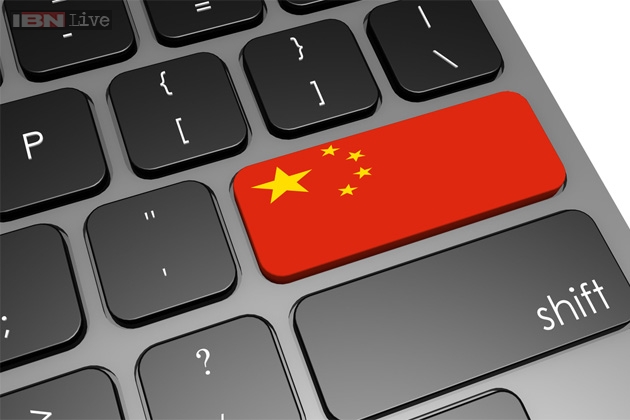China will tighten control of the Internet: officials will be able to disconnect regions from the network, providers will be obliged to transfer users' correspondence to authorities
The authorities of the People’s Republic of China are preparing new laws on cybersecurity and countering terrorism. Providers will be obliged to follow the messages of users, and state officials will receive the right to disconnect entire regions from the Internet.

The history of the Internet in the People’s Republic of China began on September 20, 1987: Professor Qian Tianbai sent the first e-mail with the text "Overcoming the Great Wall of China to connect with the world." By 1997, there were 290,000 networked computers and 620,000 users in the country. In 2015, the number of users reached 668 million.
Today, the Great Chinese Firewall , or Golden Shield, has been operating in China. It filters Internet content since 2003. To publish information taken from a foreign news resource, you need to get special approval, sites are filtered by keywords and blacklist. Non-censored resources may be banned: Google Play does not work in China - Android users use alternative app stores instead of it, Chinese use QZone, Renren, Pengyou and Kaixin001 instead of Facebook. As of June 2015, the Chinese version of Wikipedia has been completely blocked on the territory of the country in order to “combat the propaganda of violence in the media.”
Chinese authorities are preparing the final version of the law on cyber security. Providers will have to "improve the management of information distributed by users" and "stop the transfer of illegal messages," writes Kommersant . Software companies for critical infrastructure facilities responsible for energy, water and transportation will be required to obtain special permits from the cyberspace administration. If necessary, the authorities will be able to disconnect from the network in the territory entrusted.
')
Internet police are already curbing the illegal activity and spread of rumors and actively protects user data in the largest Internet companies in China.
The law on countering terrorism, which is at the finalization stage, contains an article according to which “providers are obliged to provide cryptographic keys to government agencies”: the authorities will have access to all user data. Providers will be able (and will be required) to immediately cease the dissemination of information as necessary.

The history of the Internet in the People’s Republic of China began on September 20, 1987: Professor Qian Tianbai sent the first e-mail with the text "Overcoming the Great Wall of China to connect with the world." By 1997, there were 290,000 networked computers and 620,000 users in the country. In 2015, the number of users reached 668 million.
Today, the Great Chinese Firewall , or Golden Shield, has been operating in China. It filters Internet content since 2003. To publish information taken from a foreign news resource, you need to get special approval, sites are filtered by keywords and blacklist. Non-censored resources may be banned: Google Play does not work in China - Android users use alternative app stores instead of it, Chinese use QZone, Renren, Pengyou and Kaixin001 instead of Facebook. As of June 2015, the Chinese version of Wikipedia has been completely blocked on the territory of the country in order to “combat the propaganda of violence in the media.”
"The state creates a system for the protection of national information networks, protects national sovereignty, security and development interests in cyberspace." National Security Law, Art. 25
Chinese authorities are preparing the final version of the law on cyber security. Providers will have to "improve the management of information distributed by users" and "stop the transfer of illegal messages," writes Kommersant . Software companies for critical infrastructure facilities responsible for energy, water and transportation will be required to obtain special permits from the cyberspace administration. If necessary, the authorities will be able to disconnect from the network in the territory entrusted.
')
Internet police are already curbing the illegal activity and spread of rumors and actively protects user data in the largest Internet companies in China.
The law on countering terrorism, which is at the finalization stage, contains an article according to which “providers are obliged to provide cryptographic keys to government agencies”: the authorities will have access to all user data. Providers will be able (and will be required) to immediately cease the dissemination of information as necessary.
Source: https://habr.com/ru/post/355878/
All Articles